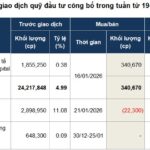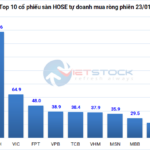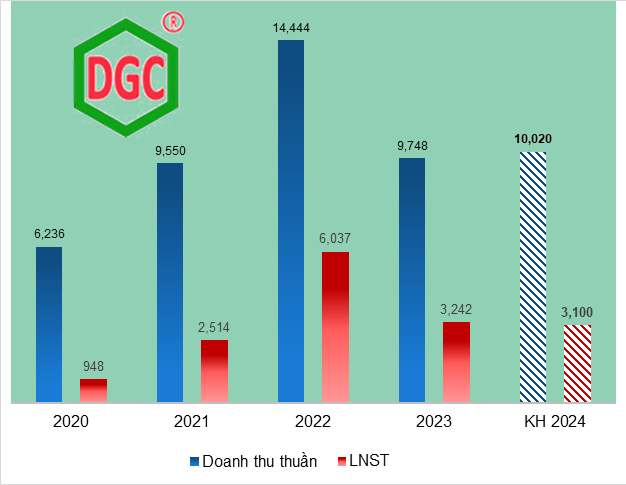According to the National Data Strategy by 2030, approved by Deputy Prime Minister Tran Luu Quang, Vietnam’s data opens up new spaces and opportunities for the digital government, digital economy, and digital society. It fundamentally reflects all aspects of socio-economic activities in the digital environment and serves as a driving force for national competitiveness, ensuring successful digital transformation and making Vietnam a safe digital nation. Data contributes to the restructuring of the economy, enabling Vietnam to surpass the low average income level, achieve high average income by 2030, and high income by 2045.
BUILDING AND COMPLETING 100% OF AGRICULTURE, INDUSTRY, AND TRADE DATA SETS
Regarding data infrastructure development, the Strategy sets a target for all national data centers, regional data centers, and national-level centers for big data storage and high-performance computing to be successfully connected, creating a sharing network for computing and big data processing to serve the socio-economic, and cultural development of the country.
Government cloud computing platforms and Vietnamese Mobile Application platforms ensure readiness to meet 100% of Vietnam’s data storage, collection, connection, and sharing needs, ensuring information security, network security, and information security at the required level.
Regarding the development of data serving the digital government, 100% of national databases in the national database catalog should prioritize the implementation of the e-government development platform, completing the digitization, updating, and effective use of data. They should also be connected and shared with the centralized data warehouse at the national data center and connected to the entire country.

Databases shared by departments, industries, and localities (except for specialized business databases) that need connection, exploitation, integration, and information sharing with national databases or information sharing with each other should meet 100% of these requirements through integrated data sharing platforms.
State agencies at the central and provincial levels should provide high-quality open data (without duplication, redundancy, or the need for data reprocessing or re-collection) that can be efficiently used and effectively utilized. They should be ready to support and serve the activities of directing, managing, and formulating administrative policies of state agencies and develop AI applications for digital economic and social development.
100% of administrative procedure handling records and results should be digitized; a minimum of 80% of data on the results of administrative procedures should be reused and shared according to regulations (except for specialized business databases). This ensures that citizens and businesses only need to provide information once when using online public services and performing administrative procedures.
Regarding data serving digital economy and digital society, the Strategy determines the construction and completion of 100% of agricultural sector datasets, including land data, crop data, livestock data, and aquaculture data for agricultural production in all regions of the country. This serves the agricultural production activities and forms data for the entire production, business, processing, management, and monitoring of the origin and supply of important agricultural products, ensuring the provision of transparent and accurate information and promoting e-commerce development.
In addition, a set of datasets for the industrial, trade, and energy sectors should also be built and completed, including data on power production, transmission, and consumption to optimize the operation of the electricity system, modernize the system of regulation, operation, information, communication, control, and automation serving the operation of the domestic power grid and regional interconnections. It should also include data on industrial production, network infrastructure, basic production supply chains in industrial activities from raw materials to commercial products. Data on logistics centers, transportation, and warehousing should also be included.
Along with that, data on the commercial market, consumer behavior, and advertising needs of brands in the Vietnamese market should be considered to optimize the production and consumption process of producing units and develop efficient channels for goods distribution and closely monitor market needs, etc.
100% completion of social insurance data for workers. Standardized data on electronic labor books will be integrated with lifelong learning data and data on workers’ training. This will be implemented and completed for 100% of workers participating in social insurance.
100% automatic monitoring and monitoring data on emissions from industrial parks and hotspots of environmental pollution should be guaranteed to meet connectivity needs at the centralized monitoring center in the Resources and Environment sector in real-time to serve analysis and issue warnings in the event of environmental incidents.
100% data on public transportation infrastructure and transportation vehicles and data on warehouses and logistics centers should be digitized, updated in a timely manner, and support solving difficulties and obstacles in the transportation sector. It should meet the requirements for building supply chain transportation, warehousing, and logistics.
ESTABLISH REGULATIONS ON BUYING, SELLING, AND EXCHANGING PRIVATE DATA
Developing the data market, completing pilot, and experimental projects for five data exchange floors, creating a safe trading environment, and ensuring compliance with legal regulations. Developing data services (aggregation, analysis, data labeling, etc.) to provide more job opportunities for people. Exporting Vietnamese labor intelligence abroad based on new jobs with data.
To achieve these goals, the Strategy emphasizes the focus on researching and building legislation on digital industrial technology in which it stipulates forms of data ownership, data property rights, data selling policies, making data a type of asset protected by law, and creating a data market.
Establishing a Decree regulating electronic transactions within state agencies and an information system serving e-transaction, a Decree regulating electronic signatures and trusted services.
Building regulations on buying, selling, and exchanging private data, copyrighted data to create a data market. Regulation on the qualifying forms of data for participation in buying, selling, exchanging, and transferring data.
Establishing regulations on the obligations and responsibilities of digital platform operators, electronic transaction systems in collecting, storing, using, connecting, sharing, and trading digital data. Drafting regulations on standards, norms, storage lists, connection, and data sharing, regulations on non-personal data. Issuing guidelines related to data quality management.
Researching and building incentives policies to promote the development of businesses operating in the field of data, providing data management strategies, data management platforms, and services; preventing market domination, market manipulation by organizations, and businesses holding a large volume of Vietnam’s data.
The Strategy emphasizes focusing on completing national databases in the priority implementation list for the development of e-government (national databases on population, land, business registration, finance, insurance, national databases on cadres, civil servants, and public officials), and data in fields listed in the tasks and solutions of developing digital economy and digital society approved in Decision No. 411/QD-TTg by the Prime Minister to serve the country’s socio-economic development.
Regarding the development of the data market, the Strategy states the need to develop a plan to establish a data market and legal documents guiding the pilot operation of data trading floors, including the establishment of data exchange platforms for the exchange, purchase, and sale of data. Develop models of data brokerage companies. Develop data service markets (audit, analysis, management, data labeling, etc.).















